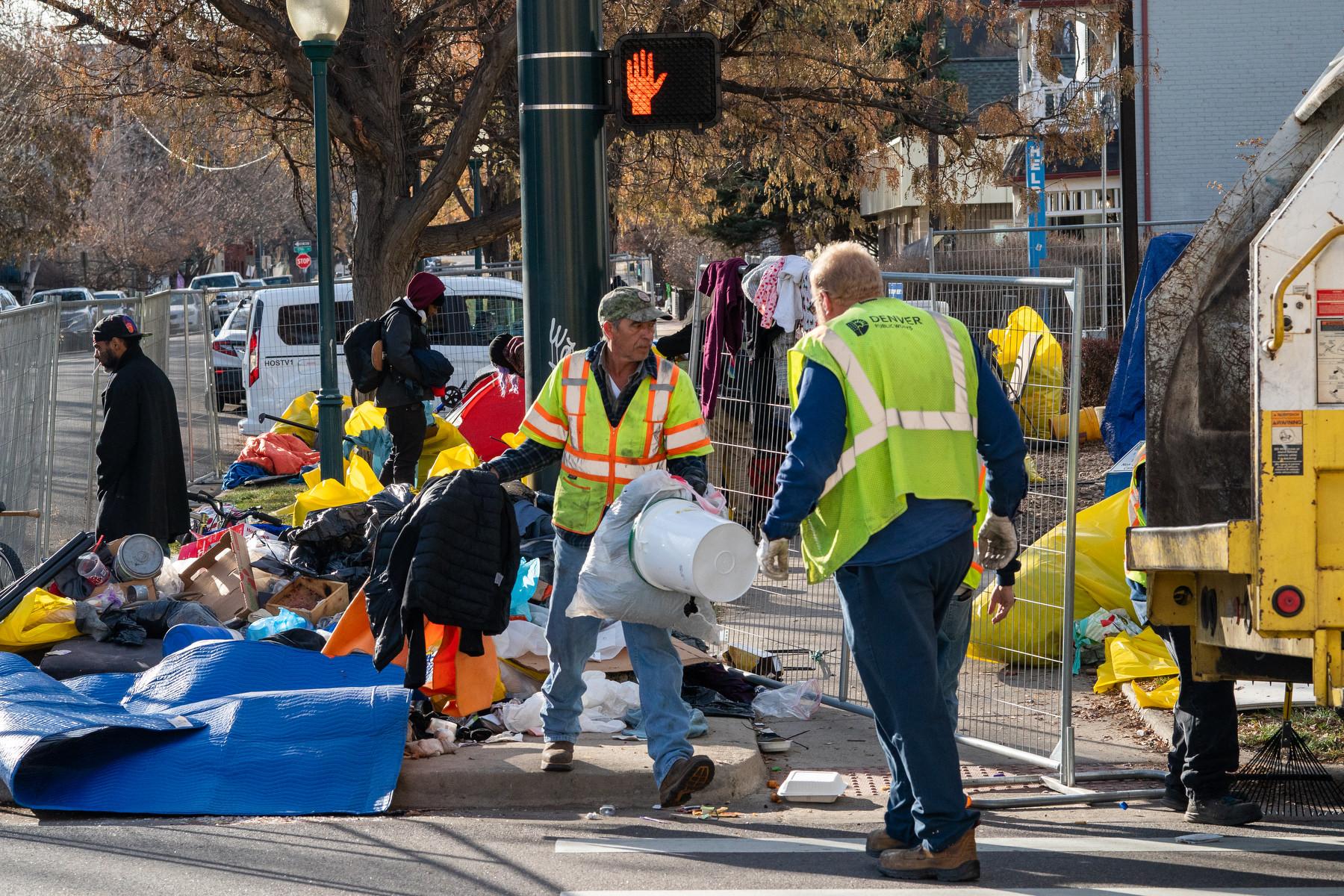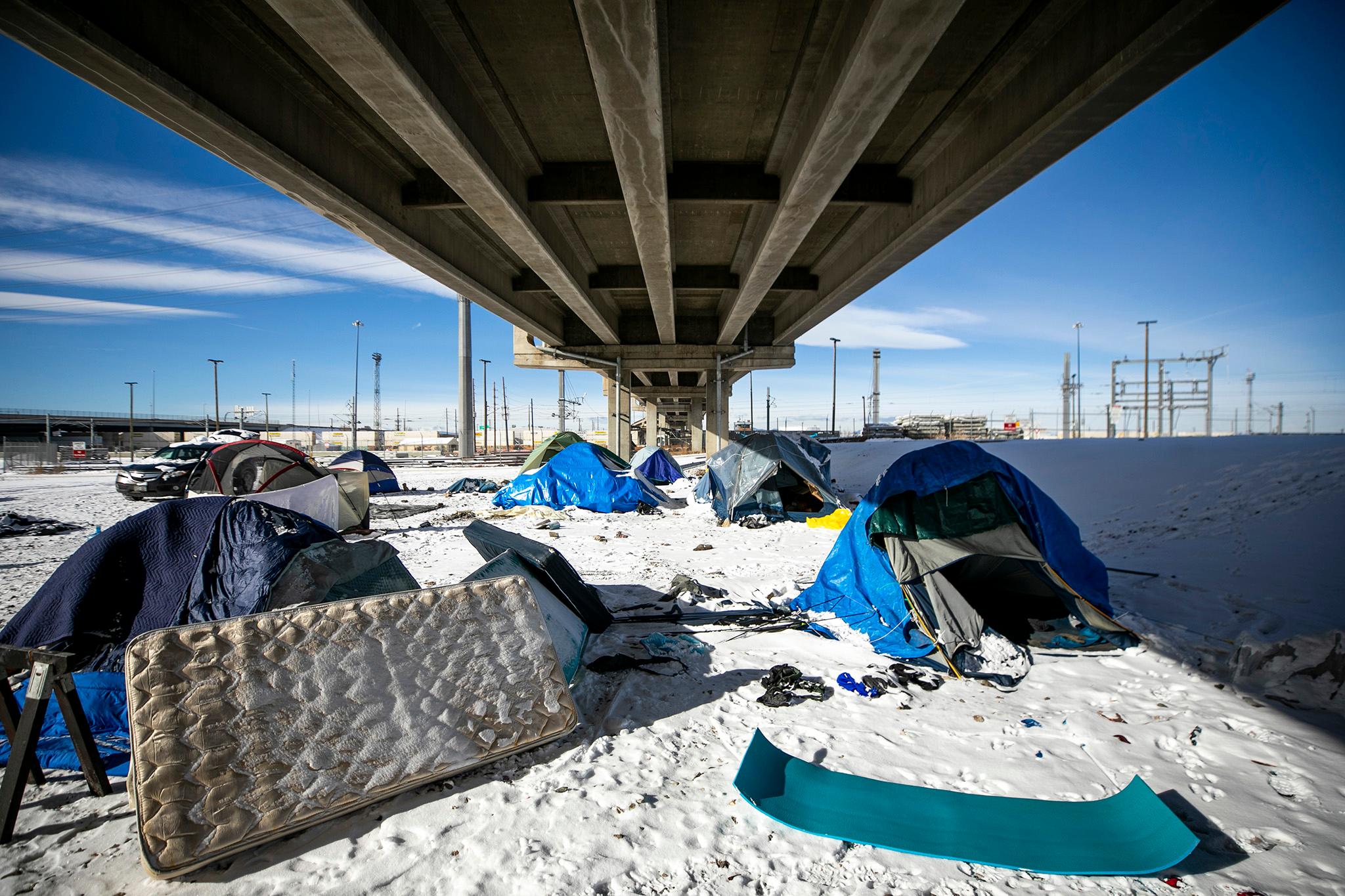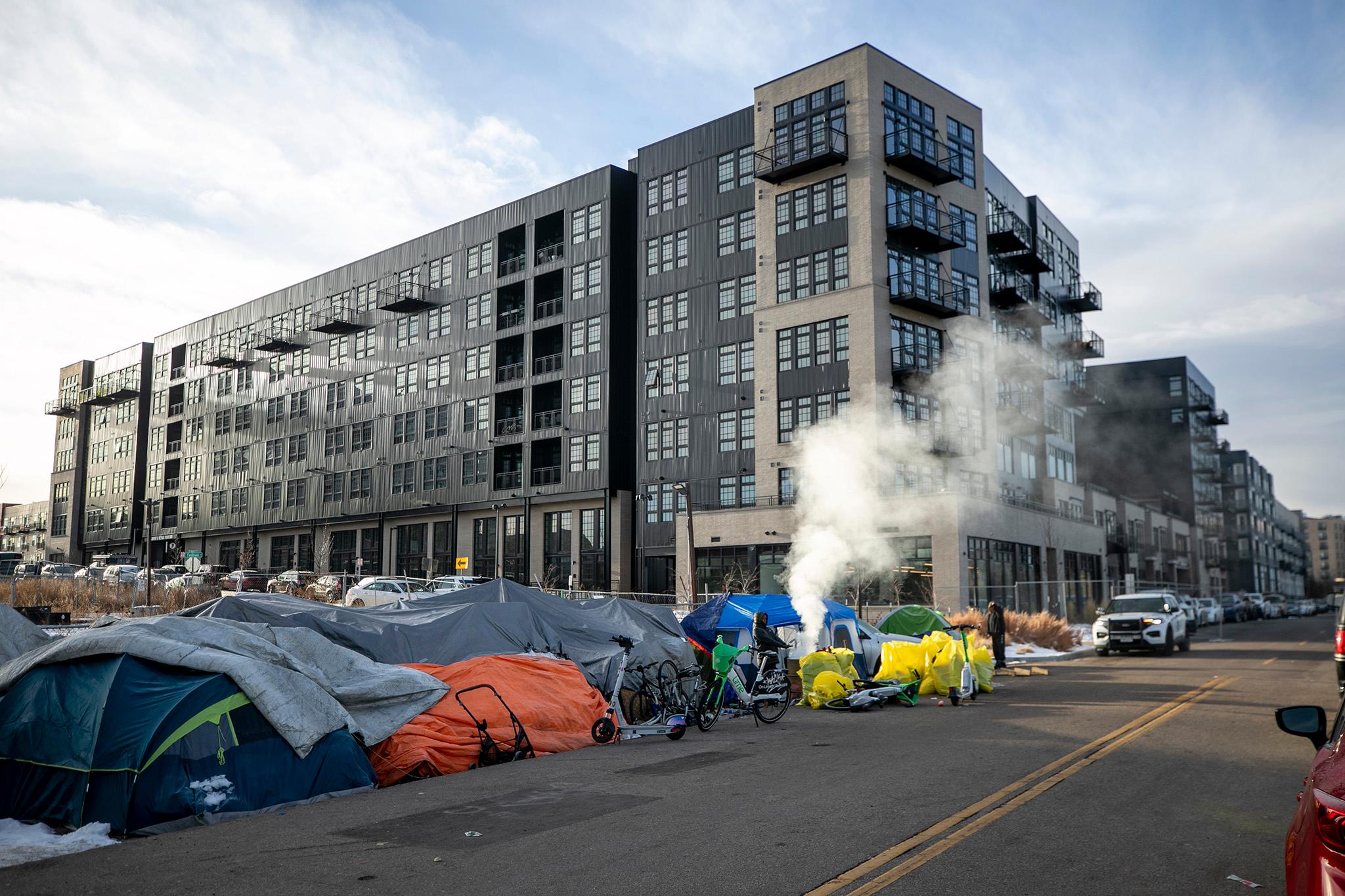Denver plans to build more micro-communities, acquire more hotels, close more encampments, all while highly focusing on getting people into permanent housing as it continues Mayor Mike Johnston's House1000 strategy in 2024.
Overall, the city's ultimate goal in the new year is to bring another 1,000 people indoors, according to Cole Chandler, Mayor Mike Johnston's senior advisor on homelessness resolution.
He gave an update on the initiative during Wednesday's Safety and Housing Committee.
The way the administration plans to shelter another 1000 people is similar to last year with some key differences on focus points.
As of Jan. 2, according to the city's House1000 dashboard, about 1,135 people living on the streets were moved indoors, and 1,113 people continued to stay indoors. While Denver has not technically housed 1,000 people by federal or city standards, which seemed to be the goal initially, the city essentially completed the House1000 mission by removing people from encampments and bringing them indoors.
There were 10 encampment closures completed last year, mainly in the downtown area.
"There had never before been successful encampment resolutions in this city. We've never been able to go into a camp and offer everyone in that camp an indoor option," Chandler said.

As of Jan. 22, the city has moved close to 300 people into permanent housing through House1000. Chandler said the big focus in 2024 is to keep adding to that figure.
The re-housing efforts will start with stronger case management efforts at each of the shelter sites, Chandler said. That means finding out what each individual person in the system needs to secure permanent housing and checking in on them on a weekly basis. That will be done by the service providers on site in conjunction with the Department of Housing Stability.
Two other pieces to the re-housing efforts are increasing physical and behavioral services and utilizing new housing resources the city has received including new housing vouchers from the state and the Denver Housing Authority.
Another focus for this year will be to add more micro-communities and hotel shelters into the fold, specifically in areas that currently don't host any sites. Chandler noted that increasing those shelter sites are contingent on financing but the model is helpful in that the hotel acquisitions are an investment and have the potential to become permanent housing once their use as shelters is no longer needed.
The micro-communities at 1375 Elati St. in Golden Triangle and on S. Santa Fe Drive in Overland were delayed due to missing community centers, but Chandler said both sites should open by March. Good neighbor agreements are also in the works for all of shelter sites, as requested by nearby residents.

The administration will also focus on closing more camps and creating low-barrier shelter options for people who attempt to re-enter closed encampment zones.
Chandler said last year's encampment resolutions were focused on closing the sites rapidly. This year, they are going to take a slower approach, about once a month, and broaden where the closures are occurring, meaning there will be less focus on downtown. The other portion is ensuring people don't return to those closed encampment zones by providing easy resources to head indoors.
Chandler also gave an update on the House1000 dashboard itself. He said the dashboard will be updated every Monday and if there is a city holiday on the first day of the week, the dashboard will be updated on Tuesday. He also said folks can view how many people get permanent housing through the dashboard; it will also show where people who exit the House1000 program end up.
The city will also bring in a third-party to evaluate the House1000 efforts, and in partnership with Councilmember Shontel Lewis' office, a pilot survey program will be used to collect feed back from shelter residents in District 8. At the end of 2023, District 8 hosted nearly than half the beds in the House1000 program.
The goal will be to eventually provide that survey to all House1000 participants.

Councilmembers seemed on board with the plan, but concerns around transparency and services to other vulnerable populations remain.
Councilmember Darrell Watson asked that the city begin communicating more clearly what is being done for the unhoused population that was already in the shelter system as many feel they are being left out of the conversation since they aren't a part of the House1000 system.
Councilmember Stacie Gilmore questioned why the city decided to pull $400,000 in funding from the Colorado Safe Parking Initiative, since a vast number of the unhoused population do live in their vehicles, especially in her district. Chandler said the funding being pulled from the existing contract was set to go toward safe parking site expansions not necessarily the entire operation. He said the city still supports the effort but isn't looking to provide funding for more safe parking sites.
Gilmore and Councilmember Kevin Flynn also asked how the city intended to handle the increase in migrant arrivals, thousands of who are being sheltered in hotels, while also working on House1000.
Gilmore spoke about equity when it comes to where these temporary migrant and House1000 shelters are being placed. There's a newcomer shelter on Tower Road with about 2,000 people, according to Gilmore. The city of Aurora also recently purchased a hotel near Interstate 70 and Chambers Road that will soon be a homeless navigation campus. Gilmore asked what communication Johnston has had with Aurora Mayor Mike Coffman about the future that area.
Chandler said Johnston does intend to communicate with Aurora Mayor Mike Coffman but didn't have any additional details.
Flynn noted that some migrants have already begun living on the street and at some point there would be no feasible way to separate them from the existing unhoused population.

Chandler said currently the city has differentiated between the two types of encampments, but it may come to a head if newcomers aren't provided with enough services when they arrive.
"It's obviously a real challenge... If inflow continues and if we can't serve people that come to our community in an effective way, they are going to wind up in encampments on the street," Chandler said. "If we can't prevent new migrant encampments from popping up, we're going to be in a really tough situation."
Flynn asked if the city would eventually merge their newcomers' assistance efforts with House1000 efforts. Chandler said at the encampment level the issues between the two groups are the same, but past that, the needs are different.
"The acuity of the need in the newcomer population is not quite as high. Many people, if they simply have a job or have income, are able to rent an apartment," Chandler said, in comparison with the existing unhoused population. "The tools look different because the needs look different, but I do agree that at the street level if we do have an encampment, we want to work to resolve that through housing options and that does look similar from that perspective."













